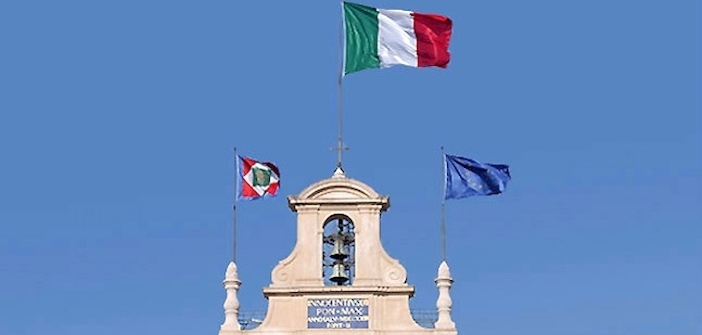On the occasion of the legislative elections in Italy, Europe’s eyes are turned towards the country. According to the latest polls, this founding member of the European Union could find itself with a Parliament largely dominated by eurosceptic and populist forces. These forces are represented by Forza Italia, the party of Silvio Berlusconi, who has returned to the forefront at the age of 82, and by the Five Star Movement.
Founded less than ten years ago by comedian Beppe Grillo and multimedia entrepreneur Gianroberto Casaleggio, this party that long refused to be categorized as such to avoid being assimilated with the politically corrupt representatives it criticized, is today the leading party in terms of voting intentions, ahead of the Democratic Party. If it wins the elections, its candidate Luigi Di Maio, 31 years old, could thus attain the position of Prime Minister.
But although it has now established itself in the Italian and European political landscape (its members sit in the European Parliament in the Europe of Freedom and Direct Democracy group), the “M5S,” as it is called in Italy, is still relatively unknown in terms of its history and functioning.
Disruptive and advocating—and sometimes practicing to the extreme—direct democracy and absolute transparency (though somewhat less practiced in this area), even gaining the label of “populist” because it is genuinely close to the people, the M5S is atypical and genuinely innovative in several respects, all while having obscure aspects regarding its management, and a leadership whose freshness contrasts with the homogeneity and cynicism of the Italian political class, but whose amateurism has sometimes proven to be a handicap.
How did a movement emerge from a series of all-out protest demonstrations—the famous “Vaffanculo Days”—organized by Grillo, transforming into an electoral war machine and succeeding in harvesting the political fruits of the Italians’ growing anger towards their institutions and their dissatisfaction with an economic situation that they have not seen improve in ten years? How was “Rousseau,” the participatory democracy platform designed by Casaleggio to manage decision-making and the electoral process within the M5S, established and how does it function? What are the relations between Grillo, the undisputed—though unelected—leader of the Movement, and his followers (or adherents, as critics imply), as well as between the M5S representatives and Casaleggio Associati, which manages “Rousseau”?
Based on the results of this election, M5S could revolutionize one of the most complex political landscapes in Europe.
A landscape on which, as it reminds us, still looms the shadow of Tancredi, the young revolutionary hero of Giuseppe Tommasi di Lampedusa’s “The Leopard,” who had to “change everything so that nothing changes.”


